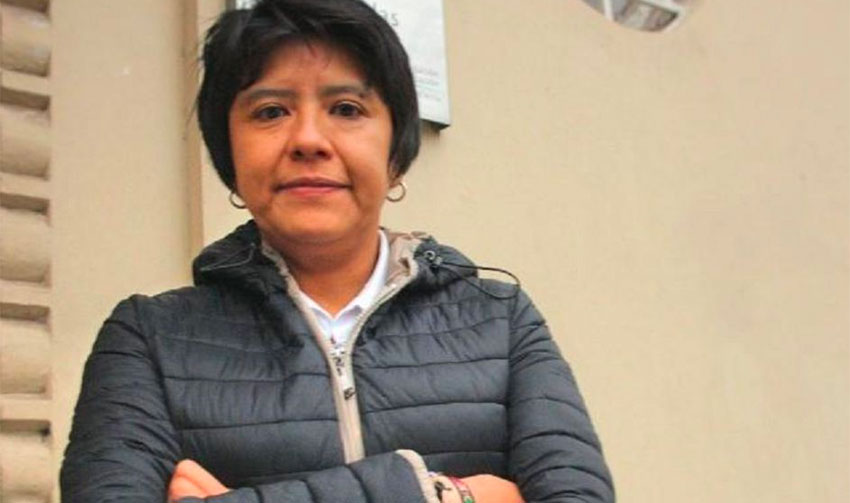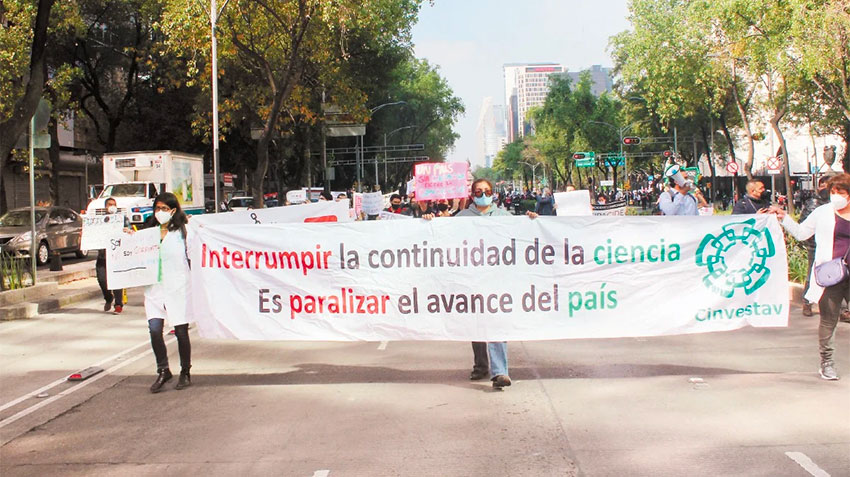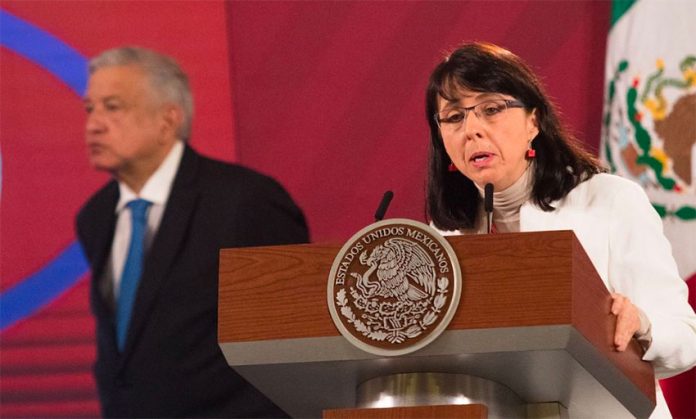Academics have once again delivered a scathing rebuke of the federal government after the Senate approved its plan to abolish 109 public trusts, many of which fund scientific research.
Despite significant opposition from the Mexican and international academic community, non-governmental organizations and others, a majority of senators voted in favor of abolishing the trusts at a session that ran into the early hours of Wednesday morning.
As a result, their funds – the 109 trusts were allocated some 68 billion pesos (US $3.2 billion) this year alone – will be handed over to the federal Interior Ministry.
Ninety-one of the trusts finance activities related to science and technology while the others fund activities including cultural projects, disaster response, the defense of human rights, the protection of journalists, agricultural development, scholarships for students and attending to victims of crime.
President López Obrador and other government officials claim that trust funds have been misused and that maintaining them would create more opportunities for corruption. However, the government has provided scant evidence to back up its claims and formal complaints haven’t been filed against any of the trusts.

María Elena Álvarez-Buylla, director of the National Council of Science and Technology (Conacyt), told President López Obrador’s press conference Wednesday that 41 billion pesos in trust funds was used “discretionally and opaquely” between 2013 and 2018.
She questioned the use of just under 15.5 billion pesos held in Conacyt trusts and 26.1 billion pesos held in trusts to fund the government’s Innovation Stimulation Program. Álvarez-Buylla said the funds went to private companies rather than scientists and researchers working at public institutions.
Alma Maldonado, an education researcher at the National Polytechnic Institute and member of ProCiencia, an academic network opposed to the abolition of the trusts, said the government still hasn’t presented sufficient evidence to justify taking over the funds.
She said there was nothing more anti-scientific than taking a decision before carrying out an investigation and presenting the evidence the investigation uncovers.
Maldonado claimed that the government has deceived the public, is guilty of slandering those who manage the trusts by claiming that the use of their funds has been corrupt and “flagrantly” lied to the Mexican people.
“In a lot of the data that María Elena Álvarez-Buylla presented she confuses trust money with Innovation Stimulation Program money. And she does it on purpose, it’s about confusing people,” she said.
Sergio López Ayllón, director of the Center for Research in Teaching and Economics (CIDE), a Mexico City university whose trusts will be abolished, said that Álvarez-Buylla was drawing a long bow in claiming that there was corruption in the use of public trust funds during the previous government.
Her remarks on Wednesday were “very unfortunate,” he said, adding that the government is trying to show a “dark side” to the trusts that simply doesn’t exist.
José Antonio Aguilar, a researcher and professor at CIDE, said that the Conacyt chief’s remarks at Wednesday’s press conference were nothing more than “propaganda.”
“She gave decontextualized and deceitful information; projects that Conacyt had with private companies were presented as acts of corruption without showing the mission they had. None of this information was placed in context in order to understand if there was something improper. It was an exercise of propaganda, disinformation and slander, which is what the president has specialized in lately,” he said.
Brenda Valderrama, a biotechnology researcher at the National Autonomous University and president of the Morelos Academy of Sciences, said the abolition of the trusts will return Conacyt to the position it was in 35 years ago.
However, the trusts’ disappearance won’t mean a “backward step” for science in Mexico but rather the “dismantling” of the entire apparatus that supports it, she said.

“The scientific apparatus will die from starvation, … the funding system is exterminated. Even supposing they [the government] want to inject money [into scientific research] there’s no longer anywhere to inject it because there’s no longer anyone to receive it or manage it. There’s not just a rupture in the way in which science is funded, there is a void,” Valderrama said.
“We had a path that guaranteed the quality of research but … now we’re entering unknown territory,” said López Ayllón, the CIDE director. “We don’t know what we’ll do in the future.”
Aguilar, López’s CIDE colleague, said the move is part of a “long attack” by the current government on “science, the arts and culture.”
“What happened in the Senate and the Chamber [of Deputies] is a milestone [in the attack], a cultural defeat, a petty victory,” he said.
The academic predicted that the government will lose significant support over its decision and that those affected will continue to protest.
“On October 2, 1968, the government confronted the student movement and thought that it crushed protest [with the massacre at Tlatelolco, Mexico City]. Something similar … is happening now. The symbolic impact it will have will be enormous. Like October 2 [the abolition of the trusts] will mark a before and after. It will symbolize the brutal divorce of a government with its victims,” Aguilar said.
Source: El Universal (sp)
